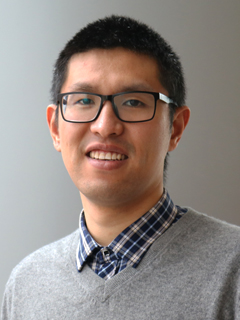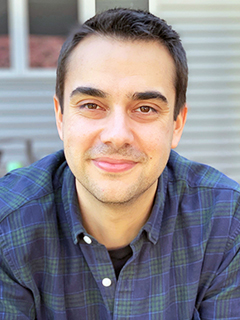HOW CAN WE HELP YOU? Call 1-800-TRY-CHOP
In This Section
CHOP Scientists Receive Prestigious Maximizing Investigators’ Research Award

Two CHOP investigators earn Maximizing Investigators’ Research Award from the National Institute of General Medical Sciences.
Two Children's Hospital of Philadelphia investigators received the National Institute of General Medical Sciences (NIGMS) Maximizing Investigators' Research Award (MIRA), an R35 Outstanding Investigator Award. NIGMS-funded scientists investigate how living systems work at a range of levels from molecules and cells to tissues and organs, and this award aims to provide investigators with greater stability and flexibility to enhance scientific productivity and the chances for important breakthroughs. The MIRA program helps to distribute funding more widely among the nation's highly talented and promising investigators.
Decoding Single-cell DNA Methylomes for Epigenetic Cell Identity

Wanding Zhou, PhD
Wanding Zhou, PhD, a computational scientist in the Center for Computational and Genomic Medicine and an assistant professor of Pathology and Laboratory Medicine in the Perelman School of Medicine at the University of Pennsylvania, leads the Computational Epigenetics Lab. He develops novel algorithms and big data analytics to understand epigenetic cell identity and its dynamics in cell fate transition, organismal development, and human disease.
Dr. Zhou's MIRA project aims to establish computational methods to decode cell states from single-cell DNA methylome profiling data using machine learning techniques and multi-omics integration. These methods will help dissect tissue heterogeneity in gene transcriptional regulation and uncover fundamental principles of developmental biology and human disease.
"Studying epigenetic cell identity through DNA methylation is the main thrust of our research," Dr. Zhou said. "This award will critically support our science, technology development, and our young lab overall at CHOP."
Lung Repair Mechanisms Mediated by the Immune-Fibroblast Interface

Jarod Zepp, PhD
As a scientist with the Division of Pulmonary and Sleep Medicine and an assistant professor of Pediatrics at the Perelman School of Medicine at Penn, Jarod Zepp, PhD, studies how cells in the lung integrate external cues during organ development and tissue repair after injury. Specifically, he is focused on identifying mechanisms regulating fibroblast activation and differentiation. Recent discoveries have uncovered vast diversity amongst fibroblasts, the cells that form and maintain the structure of connective tissue, and their unique abilities to form signaling niches that support tissue regeneration.
Dr. Zepp's research program aims to define the signaling pathways that regulate distinct fibroblast and tissue-resident immune cell niches during tissue regeneration. His team will explore this signaling niche using primary organoid models and in the context of lung injury and regeneration.
"With every experiment, our results inspire more questions," Dr. Zepp said. "With the R35 MIRA grant, we will have more time to focus on the research and the resources to pursue new directions as they emerge."